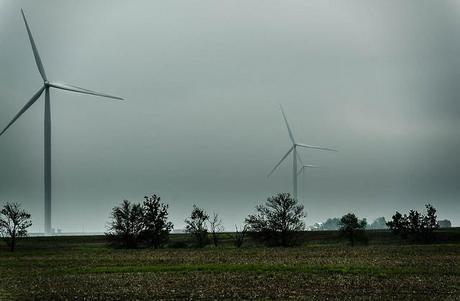What is Renewable Energy?
Renewable energy is classified as energy that comes from resources like sun light (known as solar), wind, geothermal heat and rain that are constantly replenished. Renewable energy can serve as a replacement to electricity, motor fuels, rural energy and heating. Many people might discount renewable energy sources right off the bat just by looking at the definition. They wouldn’t hesitate to question why it is necessary to switch to sources like sunlight, wind, or rain. The way they see it, these are not very reliable sources of energy.
This is why the question can only be begged: what are the real benefits of renewable energy sources? While there are certainly advantages and disadvantages to switching to renewable energy, it is quite arguable that the benefits of using such sources outweigh the shortcomings of it, especially in the future.
Of course, the shortcomings are all things that can, with time and money, be fixed due to the rapid technological advancements our country makes on a nearly annual scale. The benefits of renewable energy sources are breathtaking, and while we may not quite be in a position to fully switch over to renewable energy sources just quite yet (requiring a balance of renewable energy and other sources for now), it is imperative that we look ahead to the future.

Well, what about the shortcomings? It’s simply not fair to truly evaluate the benefits of renewable energy without first mentioning the shortcoming of it.
Advantages of Renewable Energy
1. Renewable energy is, well, renewable: This means it has infinity of sustainability and we will never run out of it. Other sources of energy like coal, oil and gas are limited and will run out some day. Renewable energy can reduce our dependence on fuels and energy from foreign governments. Strong winds, heat within earth, moving water, shining sun can provide a vast and constant energy resource supply.
2. Environmental Benefits: It is clean and results in little to no greenhouse and net carbon emissions. It will not deplete our natural resources and have minimal, if any, negative impacts on the environment, with no waste products of Co2 and other, more toxic take with different sources of energy. The environmental benefits of renewable energy are innovative in that they will dramatically scale back on the amount of toxic air pollution released into the atmosphere by other methods. Enables us to protect the environment from toxic pollutions, which in turn keep people healthier.
3. Reliable Energy Source: Our dependence on fossil fuels has increased considerably in last few decades. The result is that our national security continues to be threatened by our dependence on fossil fuels which are vulnerable to political instabilities, trade disputes, wars, and high prices. This impacts more than just our national energy policy. Also, solar and wind plants are distributed over large geographical area and weather disruptions in one area won’t cut off power to an entire region.
4. Economic Benefits: Renewable energy is also cheaper and more economically sound than other sources of generated energy. It is estimated that as a result of renewable energy manufacturing, hundreds of thousands of stable jobs will be created. Thousands of jobs have already been created in numerous European countries like the United Kingdom and Germany, who have adopted measures to manufacture renewable energy. Renewable energy amenities require a less amount of maintenance, which reduces the costs. Switching to renewable energy sources also means that the future of our energy is returned back to the people: to communities, families, farmers, and individuals.
5. Stabilize Energy Prices: Switching to renewable energy sources also means steady pricing on energy. Since the cost of renewable energy is dependent on the invested money and not the increasing or decreasing or inflated cost of the natural resource, governments would only pay a small amount in comparison to the needlessly heavy pricing of the energy prices we are witnessing currently.
The United States of America has the best wind resources in the entire world. Now that wind energy is the most cost effective source of energy, and the technology of wind turbines has improved as well as the cost has gone down. This permits more manufacturing plants that are cost effective. Wind is a reliable source of electricity, as is solar power for similar reasons.

Disadvantages of Renewable Energy
1. Reliability of Supply: One shortcoming is that renewable energy relies heavily upon the weather for sources of supply: rain, wind, and sunshine. In the event of weather that doesn’t produce these kinds of climate conditions renewable energy sources lack the capacity to make energy. Since it may be difficult the generate the necessary energy due to the unpredictable weather patterns, we may need to reduce the amount of energy we use.
2. Difficult to Generate in Large Quantity: Another disadvantage of renewable energy is that it is difficult to generate large amount of energy as those produced by coal powered plants. This means that either we need to set up more such facilities to match up with the growing demand or look out for ways to reduce our energy consumption.
3. Large Capital Cost: Initial investments are quite high in case of building renewable energy plants. These plants require upfront investments to build, have high maintenance expenses and require careful planning and implementation.
4. Large Tracts of Land Required: To meet up with the large quantities of electricity produced by fossil fuels, large amount of solar panels and wind farms need to be set up. For this, large tracts of land is required to produce energy quantities competitive with fossil fuel burning.

